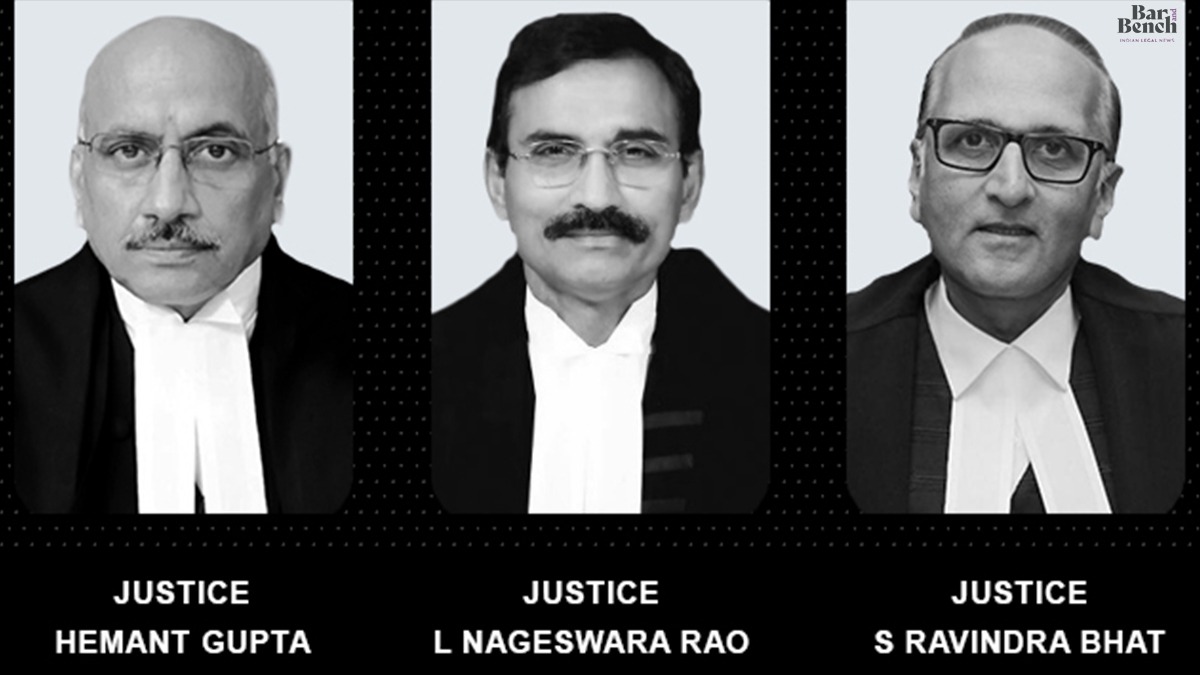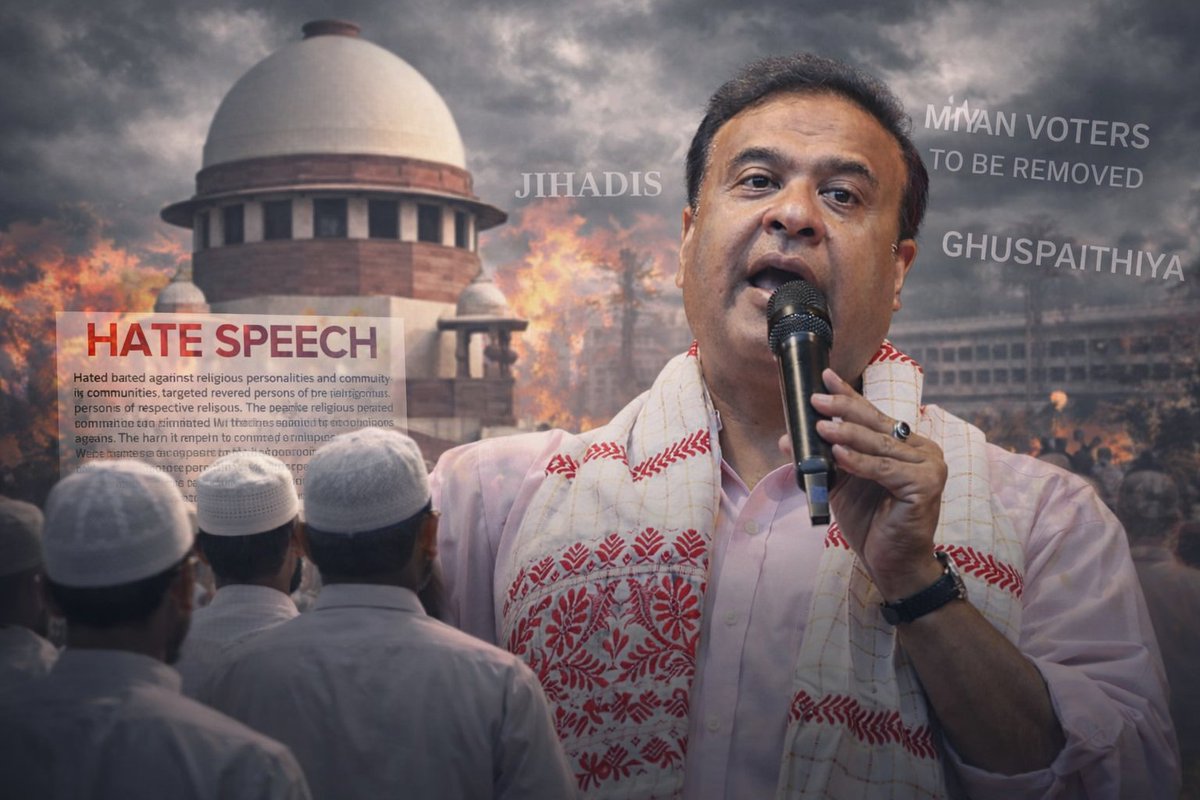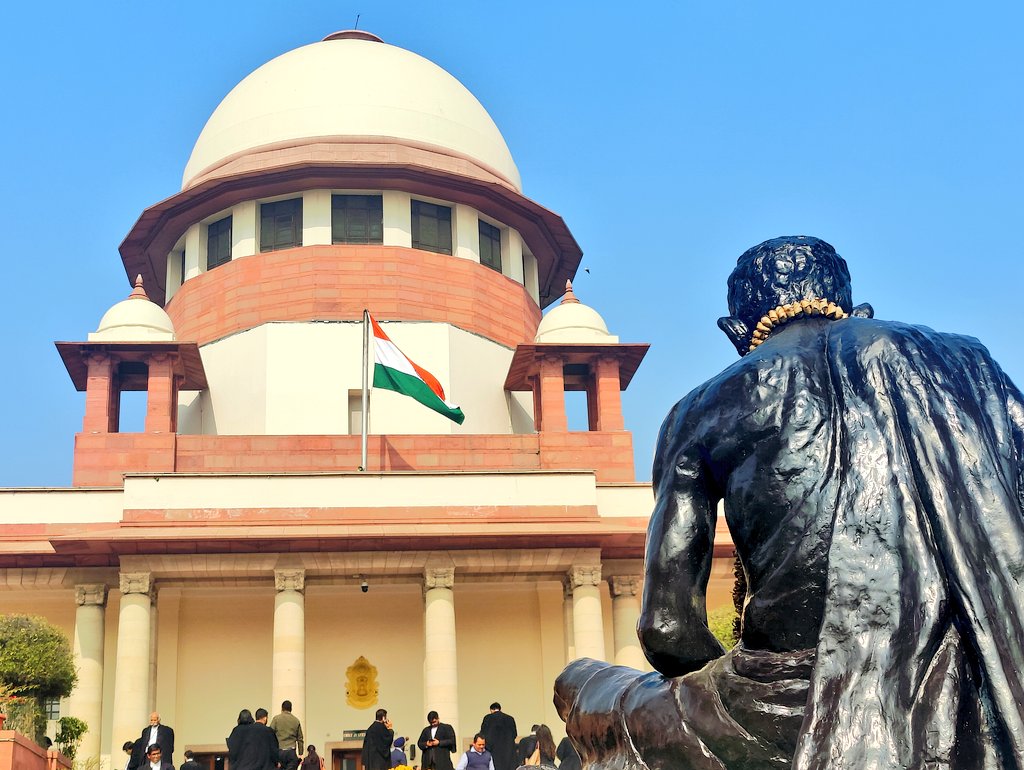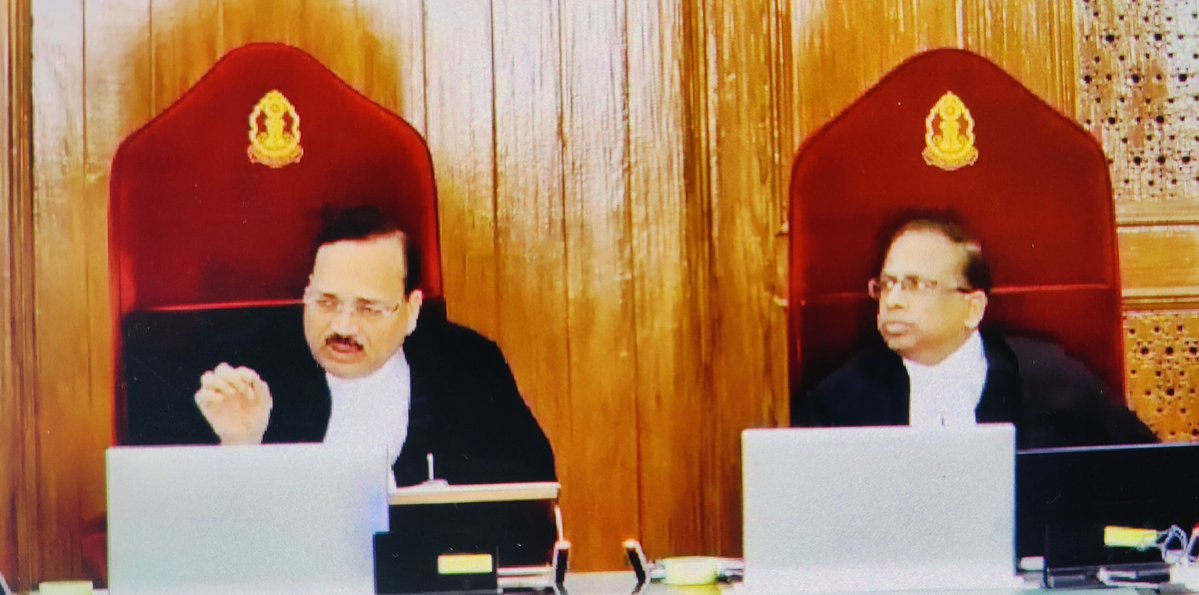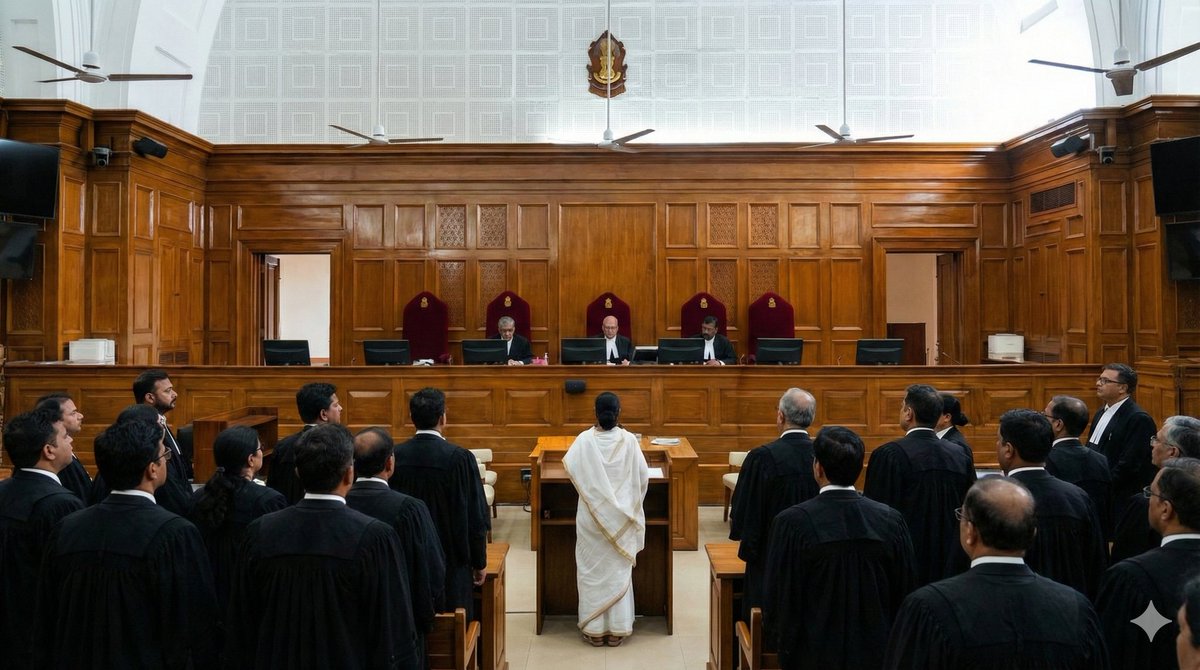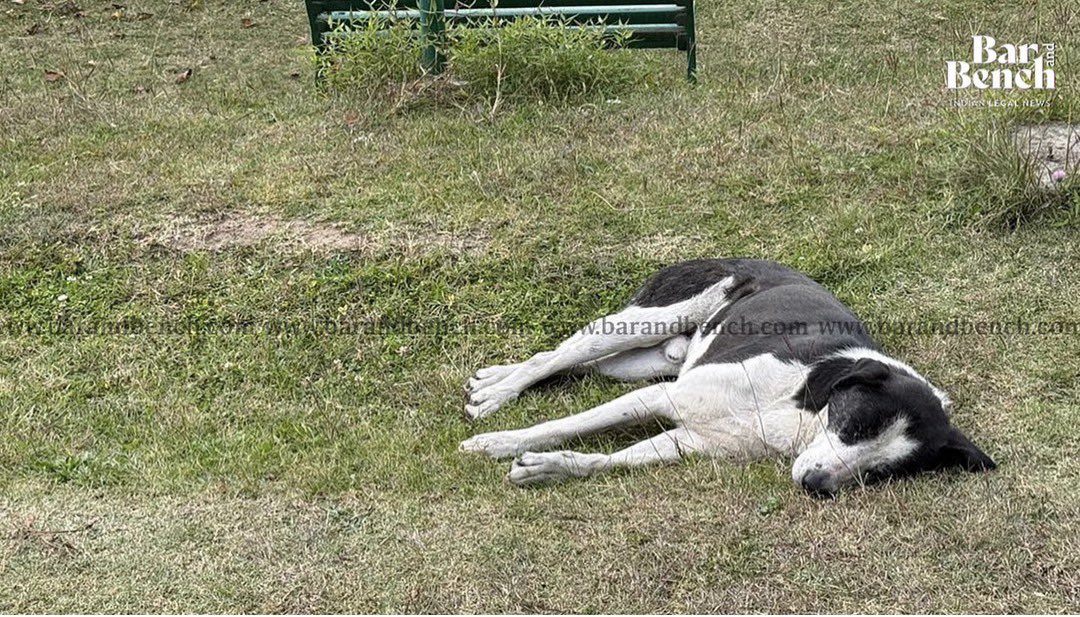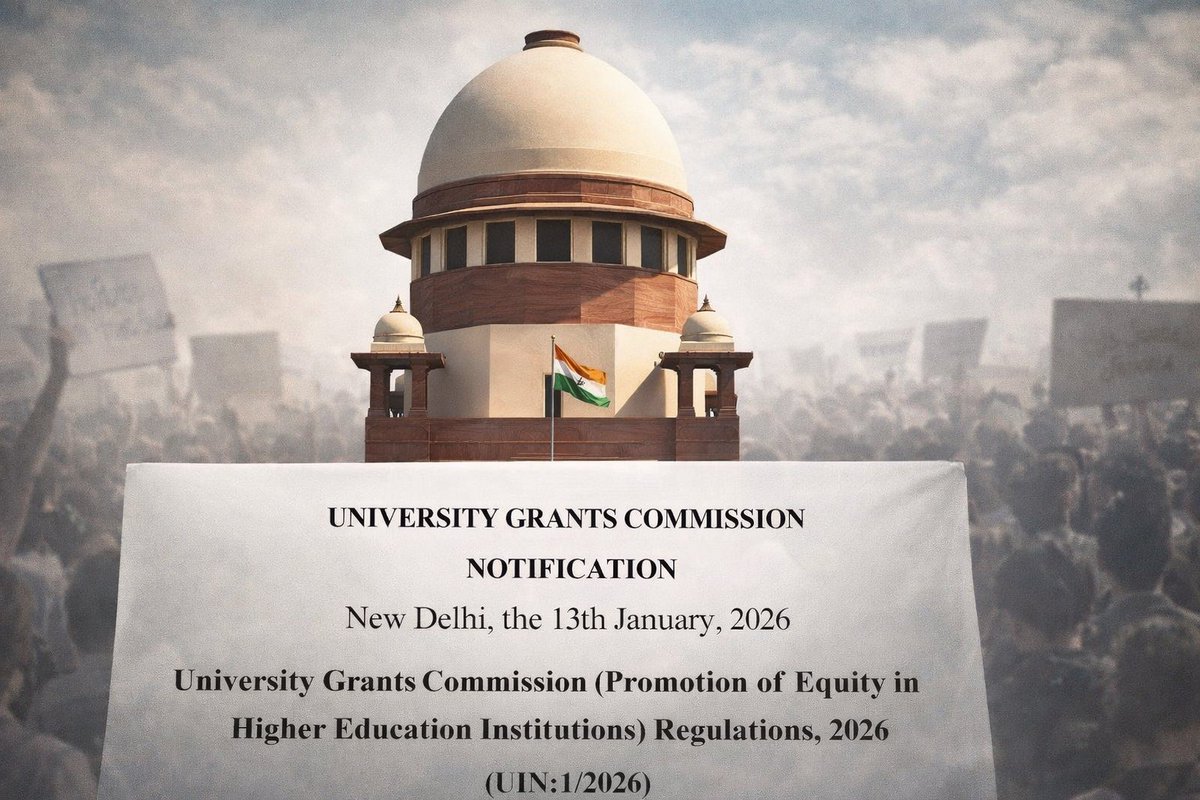CHALLENGE TO TRIBUNAL RULES OF 2020:
Supreme Court will today resume hearing on the petition filed by Madras Bar Association challenging the #TribunalRules of 2020 for being in violation of principles of Separation of Power and independence of judiciary.
#SupremeCourt
Supreme Court will today resume hearing on the petition filed by Madras Bar Association challenging the #TribunalRules of 2020 for being in violation of principles of Separation of Power and independence of judiciary.
#SupremeCourt
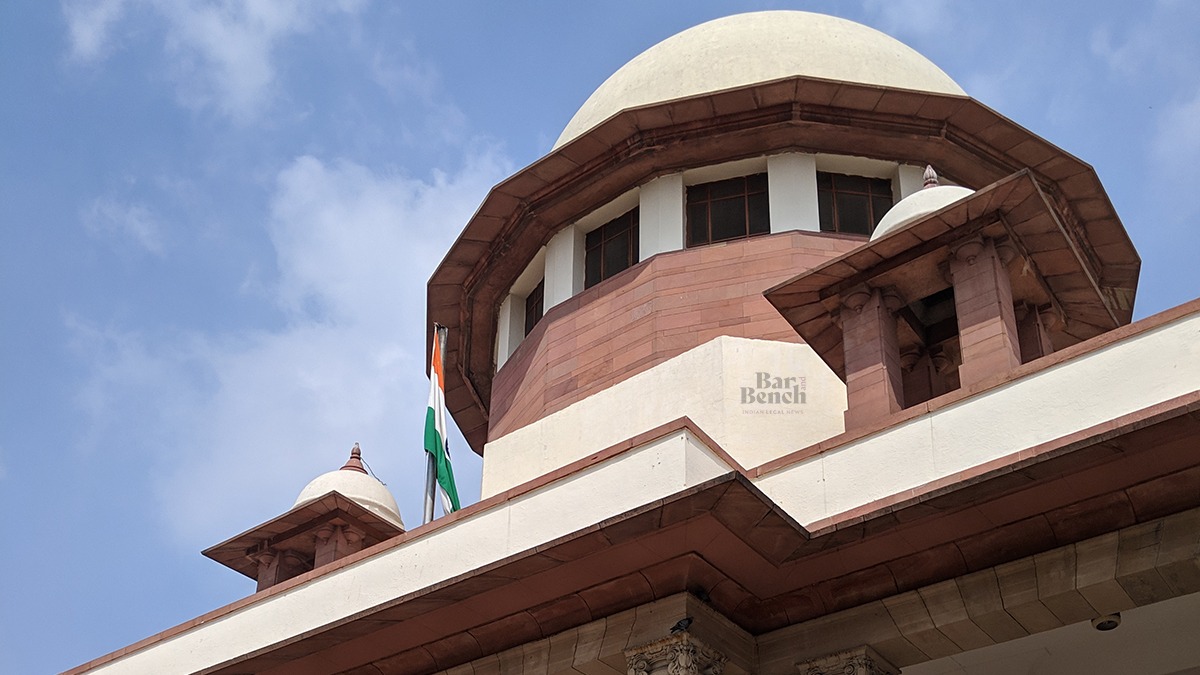
Attorney General KK Venugopal is making his submissions.
AG is taking the Court through the existing rules under the Rules of 2020 for making appointments to various Tribunals.
#SupremeCourt #TribunalRules
AG is taking the Court through the existing rules under the Rules of 2020 for making appointments to various Tribunals.
#SupremeCourt #TribunalRules
Justice Hemant Gupta inquires about the qualifications for the persons from the Indian Legal Services eligible to be appointed.
AG refers to the Rule 3 of the 2020 Rules which specifies the qualifications for members.
#SupremeCourt #TribunalRules
AG refers to the Rule 3 of the 2020 Rules which specifies the qualifications for members.
#SupremeCourt #TribunalRules
Justice L Nageswara Rao: Please tell us would a member of the legal profession surrender their licence to practice of they are appointed.
AG: They would have to I would think because this is a full time job.
(AG says he will get clarity on this)
AG: They would have to I would think because this is a full time job.
(AG says he will get clarity on this)
Senior Advocate Siddharth Luthra: The legal profession requires for licence to be surrendered in case of any employment.
Justice Rao: I think under Advocates Act, if you are an active member of the government service, you would have your licence suspended
Justice Rao: I think under Advocates Act, if you are an active member of the government service, you would have your licence suspended
Luthra agrees: There is a distinction between a person on retainer and person recruited in-house. In case of in-house there is complete bar.
AG: It has been clarified Once recruited as ILS, they are full time govt servants and this recruitment would not entitle them to hold a licence to practice law.
Justice Rao: Now tell us about larger Bench judgments that say members of ILS cannot be appointed to Tribunals.
Justice Rao: Now tell us about larger Bench judgments that say members of ILS cannot be appointed to Tribunals.
AG is now citing the judgment in the case of SP Sampat Kumar vs Union of India.
Read Judgment here:
[indiankanoon.org/doc/1085310/]
#SupremeCourt #TribunalRules
Read Judgment here:
[indiankanoon.org/doc/1085310/]
#SupremeCourt #TribunalRules
AG: I am dealing with the issue of whether a secretary to government can be appointed as a member while not having any adjudicatory experience.
(AG refers to Rules 3 and 4 of the 2020 Rules)
#SupremeCourt #TribunalRules2020
(AG refers to Rules 3 and 4 of the 2020 Rules)
#SupremeCourt #TribunalRules2020
AG: Even a secretary to govt who in his multifarious tasks can be considered suitable to be appointed bas Vice Chairman of Tribunals and that is what we have seen in SP Sampat Kumar Judgment.
#SupremeCourt #TribunalRules2020
#SupremeCourt #TribunalRules2020
Justice L Nageswara Rao: This issue has been dealt with by the five Judge Bench in Rojer Mathew saying that they cannot be appointed.
AG: But a five Judge Bench earlier in Sampat Kumar said they could.
AG: But a five Judge Bench earlier in Sampat Kumar said they could.
Justice Rao: You would have to deal with two cases, Rojer Mathew and RK Gandhi case.
Justice Bhat: The context of Sampat Kumar Judgment has to be seen because it was restricted to Administrative Tribunals.
#SupremeCourt #TribunalRules
Justice Bhat: The context of Sampat Kumar Judgment has to be seen because it was restricted to Administrative Tribunals.
#SupremeCourt #TribunalRules
AG: The judgment was passed by a very enlightened Bench of five Judges who had to deal with the issue of whether State power can be parted with.
AG refers to Rule 7 of the Rules of 2020 to highlight the composition of the Search cum Selection Committee.
AG: It is practically common for all Tribunals and it is to be headed by the CJI or a Judge of the SC.
CJI or his nominee would have the casting vote on case of deadlock.
AG: It is practically common for all Tribunals and it is to be headed by the CJI or a Judge of the SC.
CJI or his nominee would have the casting vote on case of deadlock.
AG: So the Judicial dominance is maintained.
Justice Rao: Then why can't you implement what was said by the SC in the Madras Bar Association Judgment?
Justice Rao: Then why can't you implement what was said by the SC in the Madras Bar Association Judgment?
AG: We are prepared to add here that CJI or his nominee which was not mentioned in the judgment
Justice Rao: This was an interim order but this was confirmed by the SC in Rojer Mathew on Constitution of the Search cum Selection Committee.
#SupremeCourt #TribunalRules
#SupremeCourt #TribunalRules
AG: For a search cum Selection Committee, if you are thinking of making an appointment for Vice Chairman from a member, then the presence of Chairman has to be there.
The question is do you want to bring in so many judicial representatives.
The question is do you want to bring in so many judicial representatives.
Justice Rao: There are not too many right now, you only said that an additional Judge can be brought.
AG: I said about casting vote with the CJI or his nominee. When there is 2:2 representation.
AG: I said about casting vote with the CJI or his nominee. When there is 2:2 representation.
AG: It is a far more efficient mechanism if you have the outgoing Chairman also because he will have far more wealth of knowledge to guide the process.
Because CJI or his nominee, how will they know the functioning of the Tribunal?
Because CJI or his nominee, how will they know the functioning of the Tribunal?
Justice Rao: There are some points we want you to look into:
We are looking at apointments for Vice Chairman and also members.
2020 Rules do not restrict presiding officers to be judges only.
We want you to look into R Gandhi and Rojer Mathew which call for judicial dominance.
We are looking at apointments for Vice Chairman and also members.
2020 Rules do not restrict presiding officers to be judges only.
We want you to look into R Gandhi and Rojer Mathew which call for judicial dominance.
Justice Bhat: What happens if the post of the Chairman is up for reappointment?
AG: But that is not a problem that can be solved by adding another High Court Judge to the committee who will be equally ignorant about the functioning of the Tribunal.
AG: But that is not a problem that can be solved by adding another High Court Judge to the committee who will be equally ignorant about the functioning of the Tribunal.
Bench asks AG to address on these points after lunch break.
Hearing to continue post lunch at 2 PM.
Hearing to continue post lunch at 2 PM.
Bench re-assembles.
Attorney General KK Venugopal continues submissions.
Attorney General KK Venugopal continues submissions.
AG: The Chairman would be the ideal person... The Govt is prepared to have an additional judge from the SC or a nominee as a second Judge
There will be CJ or his nominee, an SC/HC judge, a Tribunal Chairman and two secretaries.
There will be CJ or his nominee, an SC/HC judge, a Tribunal Chairman and two secretaries.
Referring to the issue of casting vote raised earlier, AG says: The only problem is that suppose the Chairman finishes his 4-year term, there will be 2:2, then your Lordships would be entitled to invite a judge from the SC or HC.
Justice Rao: Is there any finding recorded in Gandhi/ Rojer Mathews cases that it should be the secretary of the Law Dept and Finance Dept and not from parent ministry in the selection committee?
AG says there are interim orders passed by the SC
AG says there are interim orders passed by the SC
Secretary, Law (Dept) appears to be a common factor across the Tribunals: AG observes, responding to a Court query.
AG Venugopal continues reading cases.
AG Venugopal continues reading cases.
AG Venugopal: We have required that the Advocate have experience in the particular branch to which he is proposed to be appointed, in addition to 25 years.
There is a formidable number of lawyers in the Bar, he adds while speaking on why 25 years minimum has been fixed.
There is a formidable number of lawyers in the Bar, he adds while speaking on why 25 years minimum has been fixed.
AG: Secretary of the concerned Ministry would be in a better position to advise on what would be the needs of the Tribunal and what is the background of the applicants.
And he would only be one of the 4 or one of the 5 (in the Committee), depending on what your Lordships decide
And he would only be one of the 4 or one of the 5 (in the Committee), depending on what your Lordships decide
The Government is equally concerned in ensuring that the delivery is system operates efficiently, AG says while reading out provisions concerning the grant of leave
We have no other alternative other than the Government to grant the leave, he adds.
We have no other alternative other than the Government to grant the leave, he adds.
AG Venugopal reads out the qualification criteria for Chairman of the Armed Forces Tribunal, which includes knowledge in law, commerce, accountancy
AG Venugopal adds that there has been some criticism from Army officers over civilians coming in at the AFT, stating that this is not in line with the ethos of the army, which a civilian may not be able to cope with.
AG Venugopal informs SC that a change may be made: Therefore, this may not be there - civilians coming in.
There may be two judges from SC and HC, and that may be enough to ensure that proper justice is done, he adds.
There may be two judges from SC and HC, and that may be enough to ensure that proper justice is done, he adds.
AG Venugopal refers to provisions of the Rules concerning the removal of Tribunal members by the Centre, acting on the recommendation of search cum selection committee.
AG: For each Tribunal there will be a committee with SC judge as Chairman. On their recommendation, the Centre has to act.
I don't see what is their objectionable point.
I don't see what is their objectionable point.
Court recounts the petitioners' arguments: The parent enactments prescribe a proper enquiry for removal by a sitting judge. Here it is the search cum selection committee.
Why should five members be doing this?
Why should five members be doing this?
Court: You have records for the last 30 years (regarding the removal of members).
Was the earlier procedure so cumbersome that you have to dilute it? There is some merit to having the judiciary involved in it.
What is the thinking that made you remove that?
Was the earlier procedure so cumbersome that you have to dilute it? There is some merit to having the judiciary involved in it.
What is the thinking that made you remove that?
This is reasonable, AG Venugopal says.
Court: But 5 people have to sit. Even for selection, this process is found cumbersome.
AG makes more submissions to assert that the process is not so cumbersome
Court: But 5 people have to sit. Even for selection, this process is found cumbersome.
AG makes more submissions to assert that the process is not so cumbersome
AG: There are three periods.
- Pre-2017 Finance Act
- The 2017 Rules (26 May 2017)
- Nov 13, 2019 - Rojer Mathews case, which struck down the 2017 Rules. All appointments made under the 2017 rules would be void, they may have had to be demitted.
- Pre-2017 Finance Act
- The 2017 Rules (26 May 2017)
- Nov 13, 2019 - Rojer Mathews case, which struck down the 2017 Rules. All appointments made under the 2017 rules would be void, they may have had to be demitted.
AG adds that there would have been a legal vacuum. So as an interim measure, the Court said that the rules prior to 2017, can apply temporarily.
AG: We made rules (now), but we do not have retrospective power.
(However) these are the Rules that the Finance Commission wanted us to make, and which should operate from May 26. 2017. Otherwise, there was a vacuum, he adds.
(However) these are the Rules that the Finance Commission wanted us to make, and which should operate from May 26. 2017. Otherwise, there was a vacuum, he adds.
Court observes There was no real vacuum. Whatever appointments took place were under the parent enactment. What Rojer Mathews did was precisely the same.
Court: Can you amend these rules and pass a notification based on whatever suggestions you have made before us?
AG Venugopal: We will place it as a draft before your Lordships because we do not want it to be challenged again. Once your Lordships approve.. let other side argue..
AG Venugopal: We will place it as a draft before your Lordships because we do not want it to be challenged again. Once your Lordships approve.. let other side argue..
Court asks if petitioners want to make further submissions.
Court: Have you taken note of the suggestions made by him?
Datar appears, says he may make some submissions.
Court: Have you taken note of the suggestions made by him?
Datar appears, says he may make some submissions.
Luthra: He cannot retrospectively apply the rules, that was never the... There is no question of retrospectivity that could apply.
Rakhesh Khanna: If a person is entitled to be appointed as a district judge, he is entitled to be appointed to the DRAT. Why the two selection processes?
Khanna: If he is entitled to be appointed as a district/ HC judge, to say that he is not entitled to be appointed to the tribunal is not justified.
Court: You have no problem, no objections to appointments to Labour courts and tribunals (which has combined service is a criterion)?
Why only the DRAT, Court asks
Why only the DRAT, Court asks
If Officers of Indian Legal Services are considered for appointment, so should law officers, Khanna adds, during his arguments.
Khanna: One of the Chairmen of DRAT will be superannuating in October. Lordships may consider passing appropriate orders.
Court: If it is going beyond that, you make a mention. I don't think it is going beyond that
Court: If it is going beyond that, you make a mention. I don't think it is going beyond that
AG suggests that since there are a large number of IAs, those IAs should be handled by two ASGs.
ASG Balbir Singh is making submissions now.
Singh recalls the Rojer Mathew case where issues concerning qualifications, search cum Selection Committee, among others had come up.
#SupremeCourt #TribunalRules
Singh recalls the Rojer Mathew case where issues concerning qualifications, search cum Selection Committee, among others had come up.
#SupremeCourt #TribunalRules
Singh reads from the Rojer Mathew judgment where 184 was held to be constitutional.
#SupremeCourt #TribunalRules
#SupremeCourt #TribunalRules
Singh: Section 184 was upheld on the ground that there was nothing in violation of Finance Act.
#SupremeCourt #TribunalRules
#SupremeCourt #TribunalRules
Singh: In the interim orders, the order passed kn Feb 9, the composition of search & selection committee was appointed. The suggestion is taken care of, is my respectful submissions.
#SupremeCourt #TribunalRules
#SupremeCourt #TribunalRules
(SC asks Singh to read specific excerpts from the Rojer Mathew judgment touching upon the independence of judiciary aspect)
#SupremeCourt #TribunalRules
#SupremeCourt #TribunalRules
Singh: In these Tribunals, even the administrative members or vice Chairman can become the members of the search and selection committee and that was found to be questionable.
Singh: The difference between Tribunals and HCs is that for a person appointed to at an age of 48 years to a HC may not get a chance to sit in a single Judge Bench whereas a person appointed to Tribunals at the same age may get to man the Benches.
Singh: The first chance to become a Vice Chairman at the age of 48 in Tribunals, is after 13 or 14 years of experience.
Appointment as Chairman after being an Admin member or vice Chairman, all parameters are fulfilled
Appointment as Chairman after being an Admin member or vice Chairman, all parameters are fulfilled
Singh, referring some case observations: When the primacy is given to the HC judge, it is may not be so much of a threat to judicial dominance so as to strike down the rules.
Singh: The difference between the 2017 and 2020 rules is that in 2017 rules, it was a committee to be formed by Centre. In 2020, the removal is a three-tier process
On the basis of a complaint, there is a scrutiny. Based on scrutiny, the reference is made to selection committee
On the basis of a complaint, there is a scrutiny. Based on scrutiny, the reference is made to selection committee
Balbir Singh's connection is lost. Court is waiting to see if he can rejoin the hearing.
Court asks other counsel how long they would take to make submissions.
Court adds: We will close this case on Friday, all of you complete on Friday.
Court adds: We will close this case on Friday, all of you complete on Friday.
Court asks AG KKV, Why don't you issue a notification with rules based on suggestions made in court?
AG: My concern is this. There will be a challenge if I make another set of rules. But if I submit a copy (before the Court), we can ... (discuss) it out.
AG: My concern is this. There will be a challenge if I make another set of rules. But if I submit a copy (before the Court), we can ... (discuss) it out.
AG adds that after the hearing, he can also receive the Court's suggestions.
Singh appears on screen, but says he can make his submissions on Friday.
Court: We will take up on Friday after the miscellaneous work. Mostly, it will be in the afternoon.
Singh appears on screen, but says he can make his submissions on Friday.
Court: We will take up on Friday after the miscellaneous work. Mostly, it will be in the afternoon.
• • •
Missing some Tweet in this thread? You can try to
force a refresh

